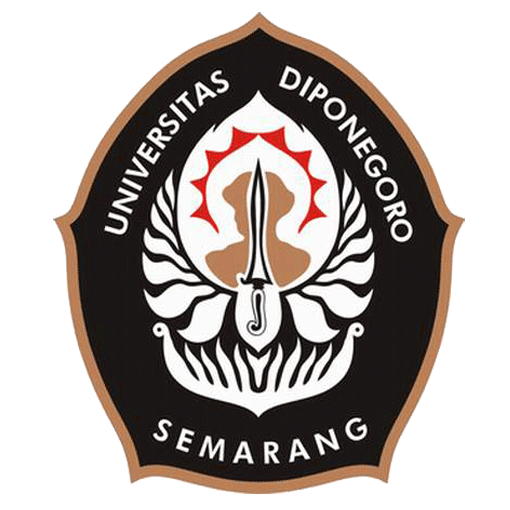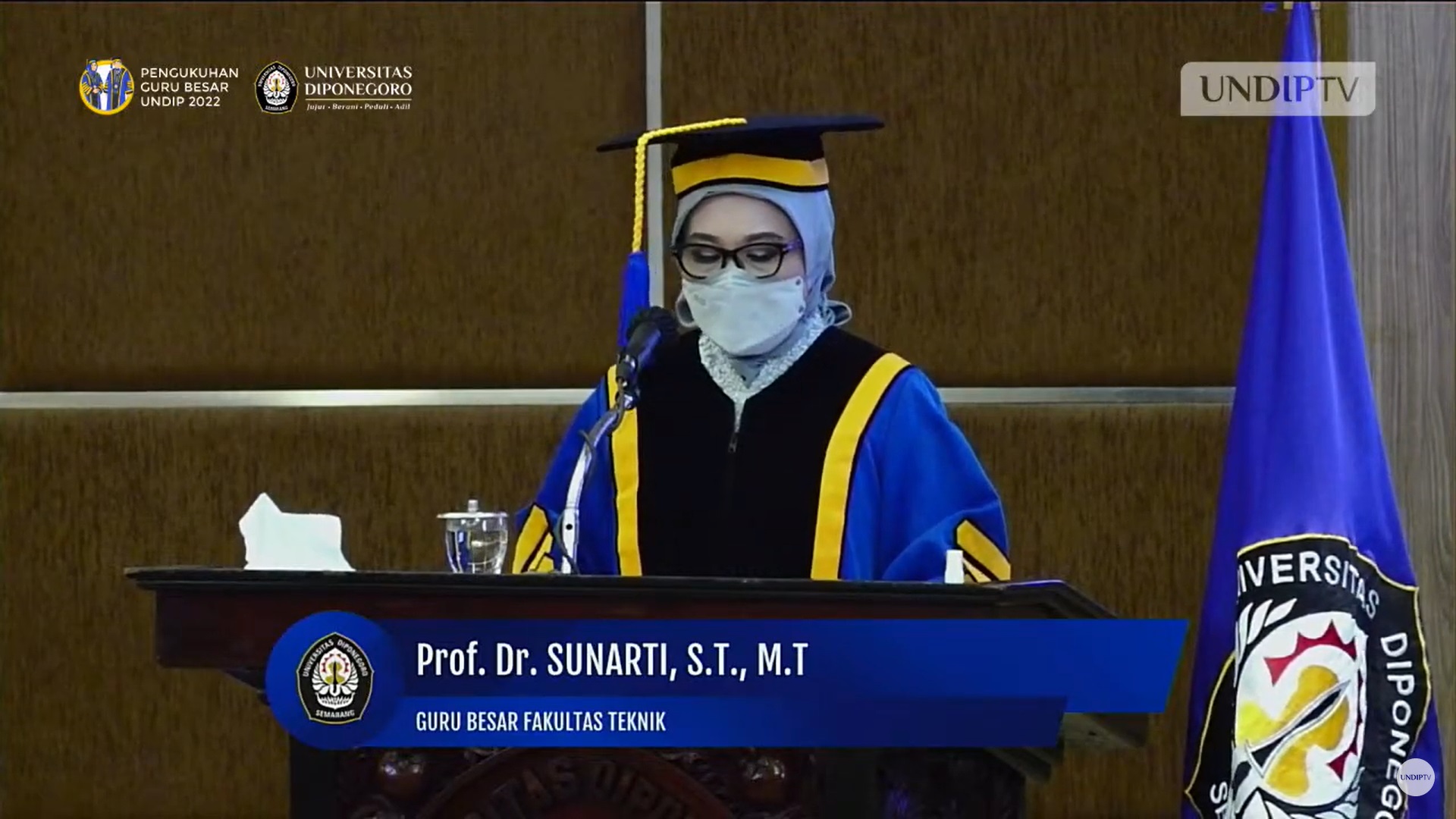The house cannot be seen only as a place to live alone, but must be seen as a place that has memory value and can affect the lives of its inhabitants. For low-income people who live in urban areas with limited economic capacity, they cannot have a house with adequate facilities and infrastructure, thus ultimately can only live in a house in a slum area that is unfit for habitation.
“For a balanced life to run in residential areas, all elements of settlements must be fulfilled which consist of nature, man, housing (shell), social relations (society), and infrastructure (networks).” said Prof. Dr. Sunarti, S.T., M.T. on Tuesday (14/06), when delivering her inaugural oration as a Professor entitled “The Transformation Model to Improve the Quality of Slums,” at the Prof. Soedarto SH Building, Undip Tembalang campus.
The Professor of Urban and Regional Planning, Faculty of Engineering (FT) Undip added that all of these elements constitute a system that must become a single unit and all elements must be balanced according to standards, functions, and roles. If one of the elements is not fulfilled, then the implementation of a life will run out of balance and the settlement will become slums.
According to her, the Government’s actions in dealing with slums only focus on improving the quality of the physical aspects consisting of environmental infrastructure and facilities. The failure to handle slum settlements in urban areas has so far occurred because it is partial and the physical aspect is being an indicator of concern for improvement, without paying attention to the transformation of the house as an element of social mobilization.
In addition, the handling of slums is also carried out with a top-down approach that does not pay attention to the needs and desires of residents. The house as a place to live to carry out the process of life requires continuous transformation carried out by its inhabitants.
So far, the results of the handling of slums from the physical aspect have resulted in changes in quality improvement, but the changes that occur are not accompanied by changes in mindset and behavior. “Transformation is successful if there is a physical change accompanied by a change in the mindset and behavior of the inhabitants. These changes will influence residents to take action in maintaining and improving the quality of decent and sustainable housing. The transformation is done by not moving the inhabitants but changing the physical and non-physical conditions of the housing unit to meet the needs and expectations of the residents.” explained Prof. Sunarti.
Therefore, this woman who was born in Kudus, April 29, 1967 suggested the concept of handling slums. This can be successful with a transformation approach based on the typology of slums, taking into account the characteristics and life processes of the residents. The relationship between the characteristics of slums, the bond between the inhabitants and their houses as well as the socio-economic conditions of the community, can gradually lead to transformation.
Thus the concept of a transformation model to improve the quality of slums can be offered for the success in handling slums. The handling of slums cannot be solved partially but must be integral or comprehensive in nature and carried out in an area. Slums can be handled by implementing a bottom-up approach.
Prof. Sunarti explained that in this concept, handling can be carried out in stages as programs starting from the most basic stage, namely providing guarantees for the status of home ownership for the community. “The status of home ownership is a hope for low-income people because they have a guarantee or sense of security for their housing ownership. With the guarantee of ownership of a residence which is a family asset, a sense of ownership will arise for the house they own.” she said.
The next stage is the construction of houses to make them livable, then the construction of adequate and proper facilities and infrastructure. This stage is the most critical stage because it determines whether or not the community can change their behavior and mindset to increase their economic capacity or will they just stop at this stage so that their quality will decline.
If this stage is successful, then there is an increase in capacity that can transform the community and will improve their own lives according to their identity and lifestyle without waiting for help from any party.
Community empowerment is held with economic and educational capacity building activities to change the mindset, behavior, and actions of residents, both individually and as community members, so that they can maintain their residential environment in a sustainable manner.
“Community empowerment is expected to create non-physical activities that have an impact on activities on the physical aspects needed by the community.” said Prof. Sunarti, who currently also serves as Chair of the City Development Laboratory, Faculty of Engineering, Undip.
Prof. Dr. Sunarti, S.T., M.T., became the 43rd professor at the Undip Faculty of Engineering. Until now, there are 161 active professors at Diponegoro University.

